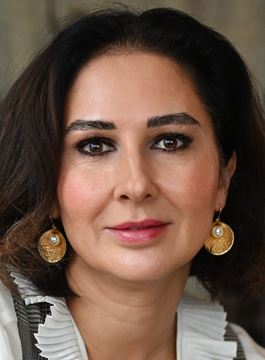Belinda Parmar OBE is a renowned expert on empathy, AI, Diversity and Inclusion.
Belinda is the CEO of The Empathy Business, an award-winning consultancy that helps global organisations embed empathy into their Culture, Communications and Call Centres.
With over two decades of experience driving behavioural and cultural change, Belinda is a leading authority on the intersection of empathy, technology, and business performance.
As a strategic advisor to multinational companies across the energy, finance, fashion, government, technology, and pharmaceutical sectors, Belinda brings a results-driven approach to emotional intelligence in the workplace.
Her work with AGL, one of the world’s largest energy companies, led to a 20.9% reduction in customer complaints and delivered cost savings of $1.7 million, demonstrating that empathy is good for people and business.
Belinda is an advocate for using AI responsibly.
She is currently leading Empathy and AI pilot programmes within major organisations to explore how technology can support more human-centric business practices, enabling employees to focus on people over processes. Her approach is grounded in the belief that the future of work is about enhancing human connection through the smart application of technology.
“Belinda’s keynote is perfect for those who want to be responsible pioneers of the human revolution at work.”
Sarwjit Sambhi, former CEO of British Gas
Belinda’s insights don’t come from the sidelines — they come from inside the system. As a Non-Executive Director for the UK Ministry of Defence, a Young Global Leader for the World Economic Forum, and recipient of an OBE for Services to Women in Technology, she brings a mix of credibility, influence, and practical experience.
From shaping AI programmes in global corporations to driving culture change in high-pressure environments, Belinda gives audiences tools that are tested in the real world to create sustainable change.
Belinda Parmar is trained as a barrister, and her career path reflects her core belief: that magic happens when head meets heart, when logic is fused with emotion, and when AI is designed to serve humanity.
Belinda Parmar OBE – Speaking Topics:
Human-Centred Leadership in an AI World
As AI shapes our work, our most significant competitive edge is being human leaders. This speech provides practical techniques for leading with empathy, clarity, and connection.
Courageous Conversations
Drawing on Belinda’s lessons from working with hostage negotiators, this session shows leaders how to navigate difficult conversations with empathy, not ego.
Marginal Gains using AI and Empathy.
Discover how small, strategic nudges rooted in EQ can create lasting cultural change — one empathy nudge at a time.

